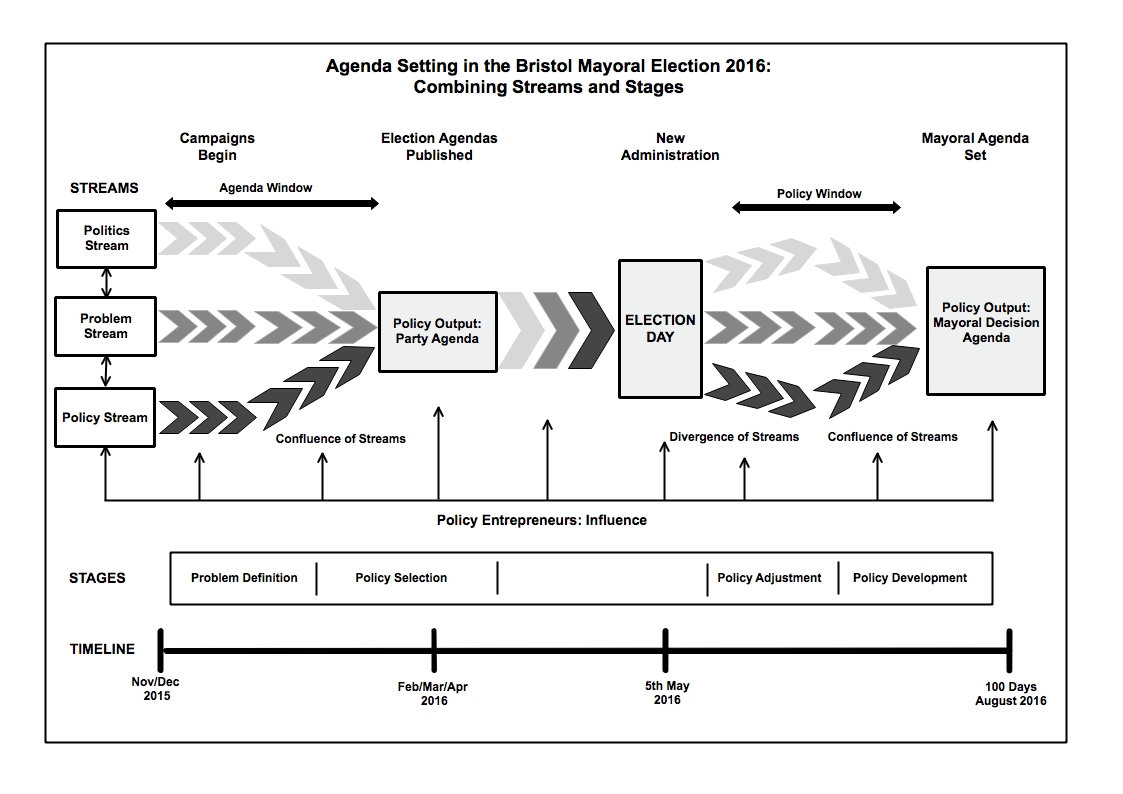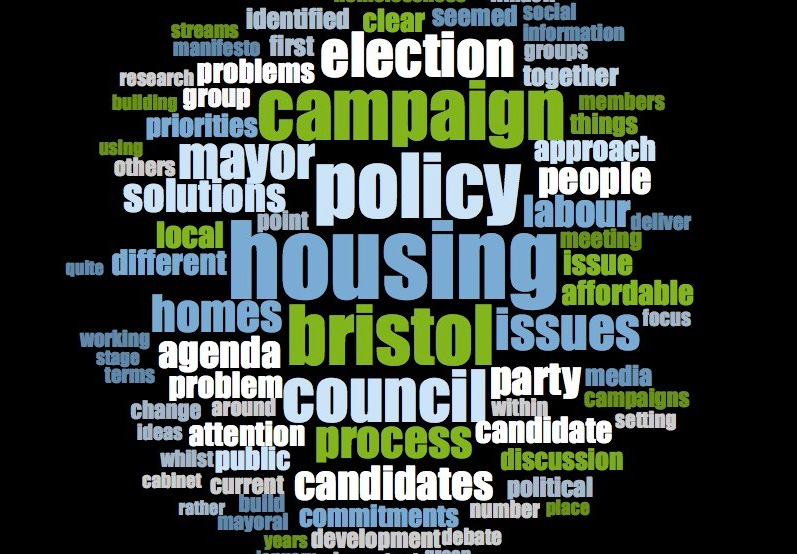
I’m a fan of local government and of the different systems used to make decisions as long as they work. In my experience it is not the system that fails but rather how it is interpreted and implemented by those in power. In the build up to the Local Government Act 2000 there was plenty of discussion about how the committee system didn’t work, how it was old fashioned and out of date. At the time instead of seeking to improve the way it worked the government decided to replace it, with councils asked to chose from one of the following options:
• Leader and cabinet executive
• Mayor and cabinet executive
• Mayor and council manager executive
• Alternative arrangement
Most councils chose the Leader and cabinet model, which is still the most common form of council structure today, despite a growing number of councils now choosing to go back to a committee system. In Bristol the criticisms were about the council being too bureaucratic, too slow, lacking in vision or action, and there being no clarity over who took decisions. There was a momentum around change both locally and nationally, for a new system of governance that would enable better decision making, clearer definition of roles, less bureaucracy, more involvement, and more scrutiny. Many of the same criticisms were also levelled at this new system when the mayoral system was first proposed.
I was a councillor at the time this new model was implemented and I was part of the group that took the decision to go for a Leader and Cabinet model in Bristol. It didn’t on the surface feel like it would be that different to what was already operating in Bristol, we had our own informal cabinet already made up of committee chairs and other key Labour members. However, what this new approach did was take away the backbenchers ability to engage in policy development and public debate. It left backbenchers and opposition members in a pure scrutiny role, working on new scrutiny commissions often with unclear aims, roles and purpose. It was all new, and it took quite a lot of time to work out quite what this new approach meant and how it could operate effectively.
It also left the majority of councillors feeling disenfranchised and disillusioned. It put decision making power in the hands of a small group and made public involvement more difficult and reduced the role of most councillors to that of looking after their ward, an important role no doubt, but only part of what being a councillor is all about. Whilst the new model may have reduced the time councillors spent in meetings it certainly didn’t do anything to improve their engagement with decisions and priorities. I well remember at the time councillors of all parties bemoaning the lack of involvement, discussion and debate and how the old system had been better.
The old committee system did encourage discussion, about decisions, about policy and strategy and about operational issues. In Bristol most backbenchers on a committee would take the lead on a particular issue and more councillors of all parties were given an opportunity to be involved in different ways. The committees often had very open public debate about difficult issues, with input from all parties making a difference to the final decision. However, there were also many occasions where political voting was decided beforehand and no amount of debate at the committee would make a difference to the decision. This in my view was the main problem with the way the committee system worked in councils where one party was in overall control – they didn’t have to win the argument they just had to turn up and outnumber the others so they could win the vote! In my view what was needed was a modernisation of the committee system, to improve the way it operated rather than the introduction of a new model that introduced a whole set of new issues and problems.
Further change in recent years means the system has continued down the route of focusing power in the hands of one person and moved away from involving the majority of councillors in decision making and policy development in any meaningful way. Since 2012 and the introduction of the mayoral model in Bristol decisions can now be taken by one person without any consultation and without any reference to other elected representatives. Yes, as a a system, it provides clear and more visible leadership, and is a role elected by the whole city rather than a handful of other councillors. But, it lacks accountability within the council, it reduces the role of councillors to ward representative and scrutiny members in a system where scrutiny seems to lack teeth!
The committee system had its strengths and was a system I enjoyed working within. It provided opportunity for debate and discussion, in a public forum. It gave backbenchers an opportunity to get to know an area of the council, to specialise, to get to know the issues and the officers involved. It enabled opposition councillors to engage in discussion and to influence decisions. It wasn’t all bad! It did, however, have it critics. It was slow, cumbersome, involved too many meetings, and could be too ‘political’ with members voting along party lines. I have fond memories of the committee system, and can even now recall some of the cross party discussion and debate we had, the issues we dealt with and the engagement we had with members of the public. I also can remember the long meetings and the frustration with how long it all took to get items onto the agenda, through the various internal processes. I do think the system got a bad press as it can be made to work and is in my view more collaborative than either of the other two systems.
The leader and cabinet system introduced in 2000 was a disaster. I don’t believe councils were properly equipped to change systems. There was no real consideration about how it would really work, how officers should operate, what it meant for scrutiny members and how it really made decision making clearer. It appeared to me a compromise between what the government wanted (a mayoral system) and what councils wanted (to stick with the committee system). One of the reasons I quit the council in 2002 was because of my disillusionment with how cabinet and scrutiny operated. The role of scrutiny was poorly thought through and under-resourced. There was little training to help councillors adapt and little thought about what it would mean for the majority of councillors. We tried a range of things, from working as scrutiny and policy development, introducing select committees, providing scrutiny leads on various issues, but with limited success.
By getting rid of committees we left a lot of councillors wondering what their role was and by bringing in an elected mayor that role was once more reduced to that of local representative with little power or ability to effect change, define priorities or develop policy. What we could have, if we didn’t have a Mayor, is a return to discussion and debate, all councillors properly involved and engaged in developing and delivering on the priorities of the council as well as representing the interests of their voters in a way that may actually support change. However, this could only happen if the political parties were willing to give up some of the control over members on committees and allow them the freedom to vote without constraint.
If change is needed then needs to be relevant to Bristol, to reflect the ambitions of the city and to deliver a system that works for the city and its people. It’s a change of approach as much as it is a change of system, let’s think about how to make the system work as much as we think about what to system to have. What’s needed is a collaborative approach, a willingness to be open and debate issues in public and the ability to listen to and learn from different views. Strong leadership comes in many forms, sometimes it is powerful enough to listen, reflect and amend your views, as it is to stick to your views and plough on regardless. If I had a vote, I would vote to return to a committee system, but I would look to introduce a new, modernised committee system, that delivers leadership, openness, discussion, collaboration and debate. I believe it can if the will is there to make it happen, but as ever it depends on the people involved and how they seek to implement the sytem.



 Embarking on a PhD in your 50s is a challenging process, not just because re-entering academia after several decades away from it is scary but also because life is very different in your 50s compared to your 20s. For me, at the beginning, the challenge was mostly about confidence, could I really do this now, at my age? Would I have the staying power, the ability to understand all that theory and the motivation to stick with it over several years? When I set out on this journey back in 2015, I couldn’t have anticipated just how challenging it would be, for such different reasons than I initially thought.
Embarking on a PhD in your 50s is a challenging process, not just because re-entering academia after several decades away from it is scary but also because life is very different in your 50s compared to your 20s. For me, at the beginning, the challenge was mostly about confidence, could I really do this now, at my age? Would I have the staying power, the ability to understand all that theory and the motivation to stick with it over several years? When I set out on this journey back in 2015, I couldn’t have anticipated just how challenging it would be, for such different reasons than I initially thought.








